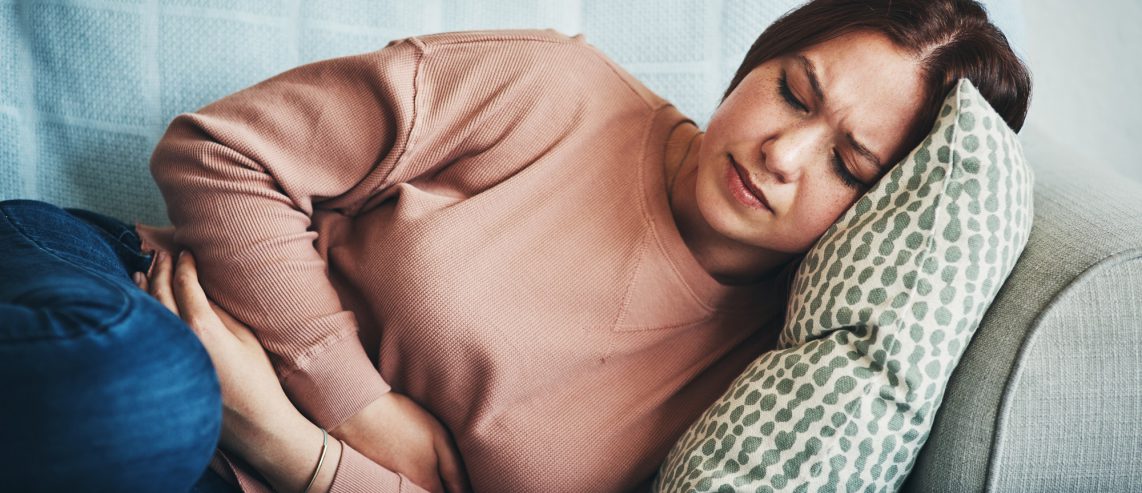It’s a dreadful feeling: Your stomach is queasy, and you’re sure you’re going to throw up. You need to get to the nearest bathroom — quickly.
Vomiting is far from pleasant. But it’s usually not serious, either. You can typically treat this common problem at home.
Here’s what you need to know about how to stop vomiting in adults, and how to treat vomiting at home.
What Causes Vomiting?
Vomiting has many causes. You may experience nausea (feeling sick to your stomach) and vomiting (throwing up) because you:
- Have gastroenteritis, an inflammation of the intestines caused by a virus or bacteria (often called the “stomach flu”).
- Are traveling and have motion sickness.
- Suffer from migraine headaches.
- Drank too much alcohol.
- Have food poisoning.
- Are pregnant and have morning sickness.
- Are emotionally upset, anxious, or worried.
- Are undergoing chemotherapy or radiation treatment for cancer. Vomiting is a common side effect of cancer treatments.
Never Miss a Beat!
Subscribe to Our HealthBeat Newsletter!
Thank you for subscribing!
You can now select the specific newsletters you'd like to receive.
You are already subscribed.
Subscribe to more newsletters in our email preference center.
Sorry, an error occurred. Please try again later.
Get Healthy Tips Sent to Your Phone!
How To Stop Vomiting in Adults
In most cases, vomiting is not serious and will stop on its own. It usually only lasts a day or so.
You may find you can’t stop vomiting. Vomiting usually happens because the body wants to rid itself of harmful or irritating substances in the digestive tract. After it does that, the vomiting will ease up.
How To Treat Vomiting at Home
There are many home remedies that may ease the discomfort of vomiting.
- Rinse your mouth well after vomiting. Sucking on a hard candy will help your mouth taste better.
- Dehydration is a common — and potentially serious — side effect of vomiting. Sip clear fluids — such as water, flat ginger ale, or herbal tea — to rehydrate. You also can try sports drinks or a formula like Pedialyte to replenish electrolytes.
- Sit up and take deep breaths.
- Rest. You’ll need to take a break from most activities until you’re feeling better.
- Eat small portions of bland foods — cereal, rice, plain chicken, toast. Wait at least half a day after vomiting to eat a solid meal.
- Try over-the-counter (OTC) motion sickness medicine. These drugs can help calm your stomach when traveling by car, bus, boat, or airplane.
- Try nibbling on saltine crackers. If you’re having morning sickness, eat a cracker before you even get out of bed.
- Avoid strong smells that can trigger nausea, like perfume and smoke.
- Stay away from spicy, fried, or fatty foods. Likewise, don’t drink alcohol, caffeine, or carbonated drinks, which can upset your stomach more.
When To Call the Doctor
Most times, you can deal with vomiting at home. If your nausea came from a stomach bug, your immune system will fight it off. If you ate or drank something that upset your stomach, you’ll usually feel better in a day or so.
However, there are situations in which you should seek medical attention. Vomiting accompanied by other symptoms could be a sign of something more serious.
You should call the doctor if you:
- Have been vomiting repeatedly for more than 24 hours.
- May have ingested poison.
- Notice blood in your vomit.
- Have vomiting accompanied by a severe headache and neck pain.
- Have vomiting with severe abdominal or chest pain.
- Are losing weight after a bout of vomiting.
- Feel dizzy or confused after vomiting.
- Have vomiting and a high fever (103 degrees or higher).
- Have diabetes. A long period of vomiting can affect your blood sugar levels.
- Show signs of severe dehydration (dry mouth, rapid heartbeat, sunken eyes, passing dark urine, passing little or no urine) after vomiting.
Severe vomiting that lasts longer than a day is sometimes a sign of another illness. Call your doctor if that’s the case, or if you have any of the symptoms above.
Editor's Note: This article was originally published on , and was last reviewed on .
Sources
About UPMC
Headquartered in Pittsburgh, UPMC is a world-renowned health care provider and insurer. We operate 40 hospitals and 800 doctors’ offices and outpatient centers, with locations throughout Pennsylvania, Maryland, New York, West Virginia, and internationally. We employ 4,900 physicians, and we are leaders in clinical care, groundbreaking research, and treatment breakthroughs. U.S. News & World Report consistently ranks UPMC Presbyterian Shadyside as one of the nation’s best hospitals in many specialties and ranks UPMC Children’s Hospital of Pittsburgh on its Honor Roll of America’s Best Children’s Hospitals. We are dedicated to providing Life Changing Medicine to our communities.
